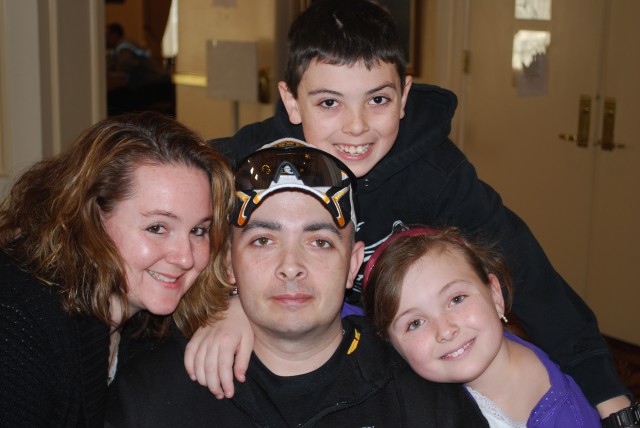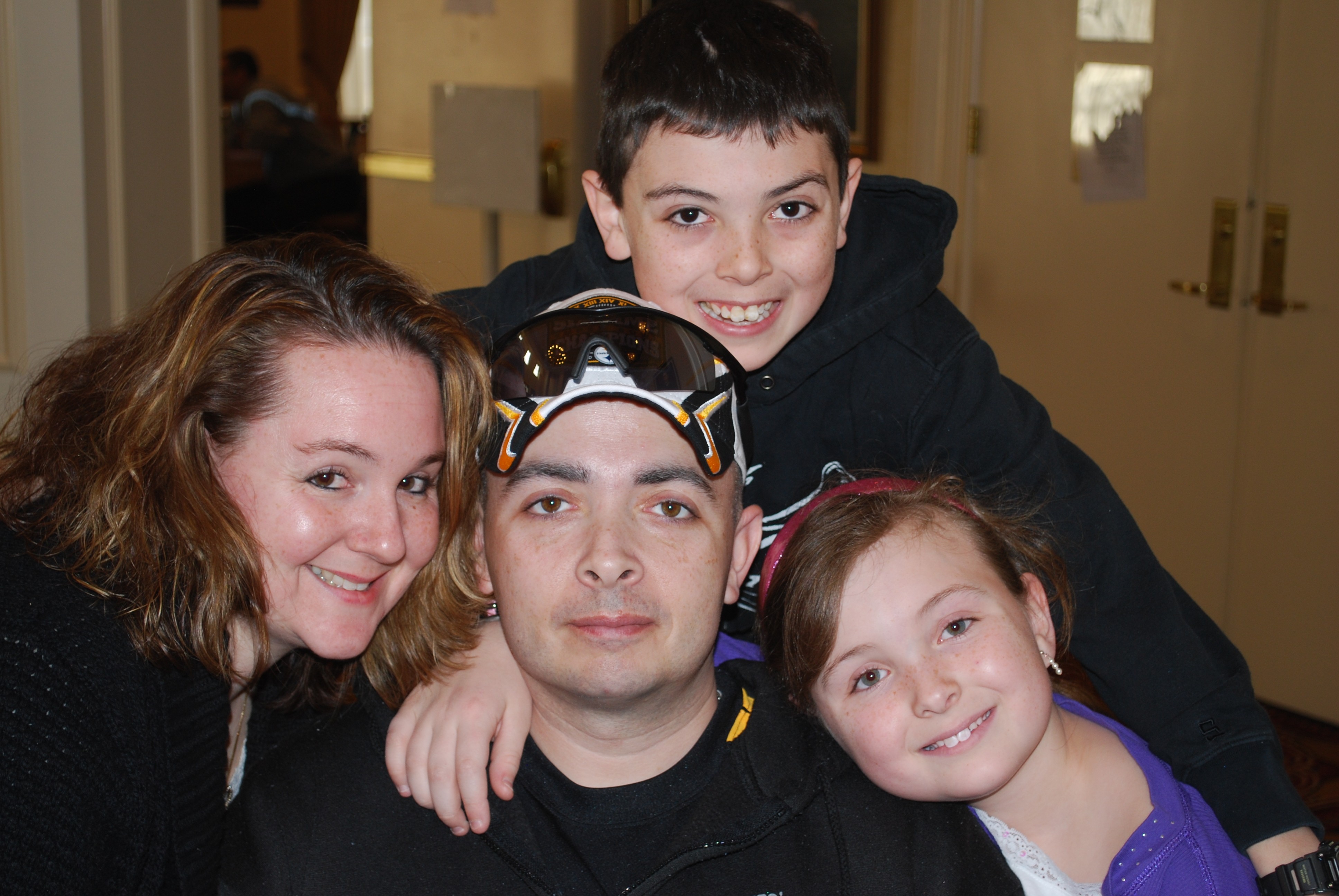Assigned as a team chief in the Multi-National Security Transition Command - Iraq's Support Division, Army Maj. Randy Klingensmith felt compelled to prove himself to his counterparts in a position many felt was anything but desirable. With less than four months in theater, Klingensmith believed he had started to make a difference.
"Everyone told me I would hate the job (closing out contracts) and that the Air Force looked down on the Army (contracting personnel) and that they didn't trust us much and questioned our competence in contracting," said Klingensmith, who prior to deploying was a member of the Expeditionary Contracting Command's 611th Contingency Contracting Team based at Fort Stewart, Ga. What he discovered was this to be a myth was held by a few, there were issues but all of them were eventually able to be worked through.
Knowing someone had to do the close outs, Klingensmith took on the mission and slowly began to change minds. Through diligence, determination and hard work, his responsibilities increased, ultimately becoming the commander's go-to-guy. "The commander (Air Force Lt. Col. Jonathan Swall) looked to me to act as his executive officer. I ended up being responsible for my five-man team and indirectly for the rest of the unit." Bringing an Army flavor and Army standards to a unit predominately made up of Air Force personnel, Klingensmith said the commander listened to and utilized the knowledge and experience he and his two fellow Soldiers, Maj. Thomas Kelly and Master Sgt. Ronald Newlan, brought to the table to help solidify the unit.
"I think I was lucky in getting that assignment," he said. "I was put in the right place at the right time. That unit needed me as much as I needed the unit. It was a good fit for both of us."
Then came the morning of August 21.
After a loud blast, tumbling, tossing and suddenly seeing a gaping hole in the side of the Mine Resistant Ambush Protected vehicle he was in, Klingensmith knew he was in danger and that he had to move quickly to help the others in his vehicle.
"I was trying to get to the other Soldiers in the vehicle and I didn't realize that I was hurt until I couldn't get to them. That's when I realized I was one of the ones hurt -- that's when my fellow Soldiers came and took care of me," he said.
His story is similar to that of other warfighters injured in the Iraqi and Afghanistan theaters of operation.
Klingensmith was on a routine mission doing administrative duties at the headquarters when his vehicle was hit by an improvised explosive device as he was returning to the international zone.
As a result of the attack, Klingensmith suffered hearing loss, a fracture to the lower back, severe damage to his left leg, and pieces of shrapnel in his right leg.
"I remember telling one Soldier to take out and apply my tourniquet as I saw how much blood I was losing," he said. "I was conscious but not conscious enough to do it myself. He knew how to use the new tourniquet system."
Klingensmith said he is alive today because of his fellow warfighters.
"Thanks to those who helped get me out. There are a lot of people whose names I didn't remember that I want to say thank you to. I'm glad they paid attention to all of their training because it made a world of difference. Master Sgt. Newlan and Col. Carol Eggert stayed with me the whole time," he said. "Carol and Ronald were a huge difference in my life during those first critical moments after the blast, I just want to thank them again."
"Sometimes we get hung up on the contracting missions," he said. "We have to make sure we always find time to conduct Army training. Everyone deploying into theater should be skilled at the common tasks, as anyone could be called upon to use them at any given time."
Soldiers need to know the common tasks and their military occupational specialty equally, Klingensmith said. Contracting is difficult and changes in procedures occur often. It is just as important to ensure everyone stays current with their non-contracting training, especially since contracting teams operate as smaller units when deployed and are often separated from main elements of troops.
"What I took out of it was our equipment works. You need to wear it and wear it properly," he said.
"The Air Force standards are different than ours. When not with Army units "we need to remember where we come from and why we are there, and maintain Army standards at all times. That means wearing the uniform when you are traveling, all of the pieces. Don't modify it to be lighter. Wear what you are supposed to wear. Make sure that your first aid kit is somewhere reachable and that you know how to use it. Pay attention to the first aid training you get at the CRC (Combat Readiness Center). Its quality training and it saved my life."
Months after the accident, Klingensmith is home with his family recuperating. "My wife has done all of my wound care for me. She has really stepped up," he said. "She is everything an Army wife should be and more."
Klingensmith's wife, Beth, uprooted the family from their home in Georgia to Maryland for two and a half months while her husband went through various medical procedures at the Walter Reed Medical Facility in Washington, D.C. During that time she did everything from arranging visits from other family members to learning how to take care of her husband's medical dressings and ensuring the kids maintained their school studies.
"There have been nights where it's almost midnight and Beth is telling me to go to sleep as she is redressing one of my wounds," he said. "Without her I would not be as well as I am today. She may not be a doctor but she is definitely the next best thing."
Life at home has been a challenge. Unable to participate in the activities he and children did prior to his injuries, bike rides and yard work have been exchanged for video games, where the youth tends to come out on top. While he can't sit on the floor with his daughter, he still is able to join her for tea and, occasionally, dressing up dolls.
"I obviously don't have that skill," he laughed out loud. "I tried but she never really liked any of my outfits. The good thing is, I can still enjoy the tea parties."
Trying to help mom and dad around the house, his daughter holds the wrappers, gauze or anything her mom needs as she cleans out her husband's wounds.
Meanwhile his son empties the trash, rakes the leaves and picks up around the house as much as he can. "They have really stepped up and have made me very proud of them," he said.
Klingensmith and family made a scheduled trip from Savannah, Georgia, back to Walter Reed for additional medical treatment.
My recovery is going well and the crew here is amazing," he said. "I think the Army finally has it figured out, at least in my opinion, when it comes to Soldier care. They treat the families well and the Soldiers well. I think my recovery is going well because of the professionalism of the people taking care of me. I'm hoping to recover enough to stay in."


Social Sharing